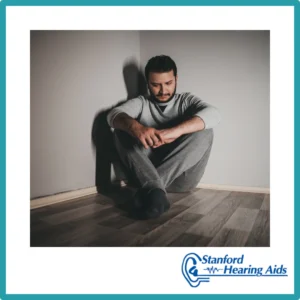Understanding the Comorbidities of Hearing Loss
Hearing plays a critical role in how we connect with the world. When hearing loss occurs, it affects more than just communication. Many health conditions often occur alongside hearing loss. These are called comorbidities. Understanding the comorbidities of hearing loss can help you take better control of your health and overall well-being.
What Are Comorbidities?
Comorbidities occur when two or more medical conditions exist in a person at the same time. Some conditions increase the risk of hearing loss, while others may develop due to hearing loss. Recognizing these connections helps in early detection and management. Addressing hearing loss early may prevent or reduce the severity of these conditions.
Conditions That Increase the Risk of Hearing Loss
Certain health conditions can contribute to hearing loss. Identifying and managing these conditions may protect your hearing. These include:
-
Sleep Apnea
This condition reduces oxygen flow to the brain, affecting hearing health. Research suggests people with sleep apnea are more likely to experience hearing problems. Poor oxygen levels can also damage the delicate cells in the inner ear responsible for hearing. Studies indicate that individuals with untreated sleep apnea have a higher risk of both high- and low-frequency hearing loss.
-
Diabetes
High blood sugar can damage the small blood vessels in the ears. Studies show that people with diabetes are twice as likely to have hearing loss compared to those without diabetes. The damage to blood vessels can reduce the supply of oxygen and nutrients to the cochlea, leading to permanent hearing impairment. High glucose levels may also harm the auditory nerves, affecting how the brain processes sound. Find out more about diabetes and hearing health.
-
High Blood Pressure
Poor circulation can harm the structures in the inner ear. Over time, this can lead to permanent hearing damage. High blood pressure, also known as hypertension, can cause thickening and narrowing of blood vessels. When blood flow is restricted, the hair cells in the inner ear do not receive enough oxygen and nutrients, leading to gradual hearing loss.
-
High Cholesterol
Blocked arteries can reduce blood flow to the auditory system. When cholesterol builds up in the blood vessels, it restricts circulation to the cochlea, increasing the risk of hearing loss. A healthy diet and regular exercise can help maintain healthy cholesterol levels and support optimal hearing function.

-
Cardiovascular Disease
Poor heart health can lead to reduced oxygen supply to the inner ear. Good circulation is essential for optimal hearing function. Studies have found that people with cardiovascular disease are more likely to develop hearing loss due to poor blood flow and vessel damage. In fact, hearing loss may be an early warning sign of heart disease. Learn more about heart and hearing health.
-
Kidney Disease
The kidneys and the inner ear share similar physiological structures and functions. Researchers have found a strong link between chronic kidney disease and hearing loss. Toxins that build up in the bloodstream due to kidney disease can also damage the delicate structures of the inner ear.
-
Certain Medications
Some drugs, including chemotherapy agents, antibiotics, and pain relievers, can cause hearing loss as a side effect. Medications known as ototoxic drugs can damage the inner ear and auditory nerves. Common ototoxic medications include certain diuretics, nonsteroidal anti-inflammatory drugs (NSAIDs), and some antibiotics. Always discuss potential hearing risks with your doctor before starting a new medication.
-
Autoimmune Disorders
Conditions like rheumatoid arthritis and lupus can cause the immune system to attack the inner ear, leading to sudden or gradual hearing loss. Autoimmune inner ear disease (AIED) is a rare but serious condition that requires prompt treatment to prevent permanent hearing damage.
-
Thyroid Disorders
Hypothyroidism, a condition where the thyroid gland does not produce enough hormones, has been linked to hearing loss. Thyroid hormones play a role in the development and maintenance of the auditory system, and a deficiency can lead to sensorineural hearing loss.
Managing these conditions with proper lifestyle choices and medical care may help reduce the risk of hearing loss.
Discover more about supporting your hearing health with nutrients.
Conditions That May Result From Hearing Loss
Hearing loss can also increase the risk of developing other health issues. If left untreated, it can impact mental and physical health in significant ways.
Social Isolation and Loneliness
People with hearing loss often struggle to follow conversations, leading to frustration and withdrawal. Over time, this isolation can have serious mental and physical health effects. Research has shown that social isolation increases the risk of dementia, heart disease, and early mortality.

Depression and Anxiety
Hearing loss makes communication difficult, leading to frustration and stress. Straining to hear all day can be exhausting and increase feelings of sadness or anxiety. Left untreated, these emotions can develop into clinical depression. Studies show that individuals with untreated hearing loss are more likely to experience depressive symptoms than those who use hearing aids.
Falls and Injuries
Balance and hearing are closely connected. Even mild hearing loss can increase the risk of falls. Studies show that for every 10 decibels of hearing loss, the likelihood of a fall increases by 1.4 times. The inner ear plays a vital role in maintaining balance, and damage to this system can increase the risk of serious injuries.
Cognitive Decline and Dementia
Research links hearing loss to an increased risk of cognitive decline. People with untreated hearing loss are more likely to develop dementia. The brain must work harder to process sound, using resources needed for memory and thinking skills. Studies suggest that treating hearing loss with hearing aids may help slow cognitive decline and improve brain function.
Heart Disease and Circulatory Problems
The ear relies on proper blood flow to function well. Poor circulation caused by heart disease, hypertension, and other circulatory issues can negatively impact hearing. Studies suggest that hearing loss may be an early warning sign of cardiovascular disease.
Tinnitus
Tinnitus, a persistent ringing or buzzing in the ears, is often linked to hearing loss. Many conditions, including exposure to loud noise, stress, and certain medications, can contribute to tinnitus. People with hearing loss are more likely to experience tinnitus symptoms.
Impact on Work and Relationships
Hearing loss can affect career performance and personal relationships. Misunderstanding conversations or missing key information can cause frustration in the workplace and at home. This can lead to decreased productivity, job dissatisfaction, and strained personal relationships.

How to Protect Your Hearing and Overall Health
Caring for your hearing can support your overall well-being. Here are some key steps to protect your hearing and reduce the risk of associated health conditions:
- Get regular checkups with your healthcare provider to monitor your overall health.
- Maintain a healthy diet rich in vitamins and nutrients that support hearing health.
- Exercise regularly to improve circulation and support inner ear function.
- Protect your ears from loud noise by using earplugs or noise-canceling headphones.
- Limit exposure to ototoxic medications that can harm hearing.
- Stay socially active to reduce the risk of loneliness and cognitive decline.
- Schedule regular hearing tests, especially if you notice changes in your hearing.
- If you do have hearing loss, treat it with hearing aids.
Explore the best Bluetooth hearing aids.
Take Control of Your Hearing Health
Hearing loss does not have to limit your quality of life. Early detection and proper management can reduce the risk of related health conditions. If you suspect hearing loss, contact Stanford Hearing today. Our hearing specialists and audiologists near you can help you stay connected and improve your well-being.
